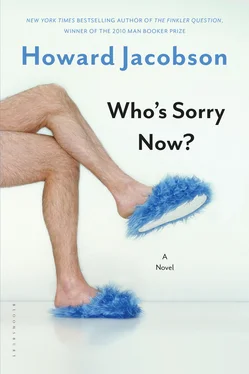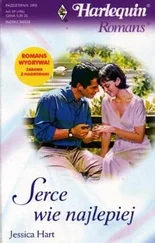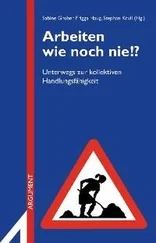Long before then, when Charlie was little, his father used to embarrass him by turning cartwheels in public places, standing on his head while reciting ‘You are old, Father William’, and otherwise playing the eccentric English schoolmaster. Sometimes, for garden parties or village fêtes, he wore a mortarboard, sometimes plus-fours and a shirt with a frilly front. ‘ Mon jabot ,’ he called it. ‘ Mon jabot du Jabberwock .’ Who was he being? Charlie didn’t know. Just someone from the past. Someone harmless. Someone curiously learned. And ineffective. Charlie’s father had golden hair and a cherub’s face. Even the wrong way up he looked angelic. Outside the family, Charlie noticed, everybody acted as though they adored his father and couldn’t get enough of him upside down reciting nonsense. But a child takes his cue from his mother in matters of embarrassment, and Charlie Merriweather’s mother was abashed, therefore so was Charlie.
Back home after another spontaneous recitation in the park –
O My agèd Uncle Arly!
Sitting on a heap of Barley
Thro’ the silent hours of night, –
Close beside a leafy thicket; –
On his nose there was a Cricket, –
In his hat a Railway-Ticket; –
— Edwin (‘Teddy’) Merriweather would submit to his lovely wife’s latest ultimatum. ‘Humiliate me like that again and you’ll be sleeping on a heap of barley,’ she warned him. ‘What you do the rest of the time is your business, but I insist you remember you are a headmaster when you are out with me. Having brought us to this hellhole, I consider it the least you can do.’
But his shoes were far too tight,
Teddy Merriweather concluded wistfully, by way of reply.
‘Grow up, Daddy,’ his daughters told him.
Even when he was annoyed with his father for not remembering to act like a headmaster, Charlie loved the precise and yet irresponsible way he spoke, as though nothing was either serious or funny but somehow both. Charlie had heard somebody called the Archbishop of Canterbury speaking on the wireless, and he thought his father’s voice was a cross between the organ pipes of the Archbishop and the burbling whiffles of that Jabberwock whose jabot his father wore.
In his heart, Charlie felt sorry for his father, going from applause to vilification in the time it took him to cross the threshold of his own house. It would have made sense, he often thought, for his father never to have come home at all. But then who would Charlie have looked to for forbearance? In his hurry to please his mother, before it dawned on him that he would never succeed, not ever, not ever ever, Charlie was constantly being flustered into mixing up his words and saying the opposite to what it was in his mind to say. He said yes when he meant no; he said up when he meant down; when she offered him her glacial cheek at bedtime, barely bothering to look up from her crossword, he would sometimes get so flustered he would call her Dada and wish her many happy returns instead of good night. Once she flew into a rage and boxed his ears, leaving him listening to silence for a morning, because he wouldn’t stop going on about the mats and rice he’d seen scuttling about the garden shed, chewing paper and disappearing into bags of plant feed. ‘What in God’s name are you talking about?’ she railed. ‘How can mats and rice chew paper? Is this some cuteness?’ His father understood. ‘It’s no wonder the boy makes such a hotchpotch of his sentences when you keep flummoxing him,’ Charlie thought he heard him say. ‘Anyway, it’s perfectly clear to me what he means. The Reverend W. A. Spooner would have understood him.’ ‘Then you and the Reverend W. A. Spooner talk to him,’ Mrs Merriweather said. ‘Nonsense is your medium, after all.’
But being frightened imposes its own obligations, and being understood was no compensation for being shamed. What Charlie gathered from his mother was that his father’s engagingness outside the house degraded all of them. A man in his position had no business turning himself into a jackass for other people’s amusement. If she’d wanted a clown to be the father of her children, she’d have gone looking for a husband in the circus. Listening to her, even with his ears ringing, Charlie was convinced. Somehow his father was wasting something that belonged to them.
Once, when Charlie was six, his father took him to a stately home in Derbyshire. Just the two of them. They had tea together — triangles of cucumber sandwiches, chocolate cake, slices of lemon on a little plate — then walked by a lake where Charlie’s father taught Charlie the names of different breeds of duck, showed him how to make stones skip across the water and, balancing on one leg with the other leg hidden behind his back, said:
I’ll tell thee everything I can:
There’s little to relate.
I saw an aged, aged man,
A-sitting on a gate.
And Charlie thought how wonderful it was to have a funny father who could rhyme and recite to him and who held his hand and didn’t hurry him. But in their leisurely wanderings they hadn’t noticed a sign saying PRIVATE and suddenly there was the aged, aged man, only he wasn’t a-sitting on a gate, he was a-standing behind it, holding back two barking dogs with cheeks as pouched and furious as his were, and he was brandishing a walking stick and shouting, ‘Be off with you, can’t you read?’ and instead of shouting back, ‘I’m a headmaster, of course I can read! I can read a damn sight better than you can!’ or standing on his head, or reciting a funny poem, Charlie’s father flushed scarlet, lowered his eyes, stammered out an apology as flummoxed as any of Charlie’s own, and hurried away, breathing audibly and holding Charlie’s hand so hard he thought it would burn up with the heat. Charlie could not remember ever having felt so sad. It wasn’t just that a perfect day had been ruined; Charlie felt that this incident would stay with him for the rest of his life and that there would never again be a day when he would not feel sad on account of it. Propping up his sadness, like poles supporting a rotting pier, Charlie recognised two distinct sensations. Firstly, he was hurt on his father’s behalf by the telling-off. How much it hurt his father he could tell from how tightly his father held on to his hand. Secondly, he felt let down, that his father hadn’t stuck up for them both and told the aged, aged man what he could do with his stick. A boy doesn’t want to see his father disgraced, whatever the rights or wrongs of the case. Was this what his mother meant when she accused her husband of lowering himself, and of lowering her and her children with him? Well, Charlie could now vouch for that with his own eyes. He had seen his father talked to like a servant. And he had seen his father bow his head and accept the talking-to, as though a servant was all he was.
Those were the happy carefree years. The blithe times, when Charlie’s father still had his powers of recovery, could take a rebuff one day and could spring back upside down in his knickerbockers the next, before comprehensivisation did what his wife had never quite been able to do, and drove him under the table.
Charlie was eight or nine, growing taller, growing lonelier, growing shyer, when the table-shrinking started. Although his father was on a pension and there were uncles to help with mortgages and school bills and the like, the change in circumstances moved his mother to the sort of action countenanced by women of her class only during times of national crisis. She went out to work! More exceptionally still, she went out to work as a dental receptionist! It occurred to Charlie that although his mother gave as her only motive money, the real reason she went out to work was so as not to have to look at his father curled up on the floor with his briefcase. An explanation contested by the remains of the person in question who, during one of his periods of lucidity, crawled out from underneath the table to accuse his wife of taking a job as a dental receptionist only in order to be close to people in pain.
Читать дальше












